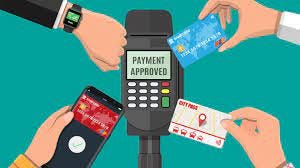There has been a huge public outcry after Starbucks in the UK announced they would no longer be accepting cash.
Starbucks would be better advised to announce they would no longer be making terrible coffee. But I digress.
Reaction to news of cashless Starbucks stores was so great that the company moved quickly to clarify it was not a store-wide policy.
Individual stores were free to go cashless - and some would - but it was not a company directive, they said.
The backlash was encouraging. People are right to be angry about any move toward banning cash.
Talk of a cashless society has been around for many years but it began to pick up pace during Covid when many retailers banned cash for fear that the virus could be transmitted by it.
Covid is not the emergency it once was but some retailers, having gotten rid of cash, have been slow to get back to how things were.
There is a sense that the public have come to accept that many stores will no longer accept cash and so it’s a good time to make the transition to digital that has long been talked about.
But to agree to a cashless society is to do a deal with the devil where, in return for a little convenience, you agree to give up privacy and control.
When all money is digital, every transaction is recorded and stored by big tech and the by the State.
Not only that, but the government have the power to instantly shut down your ability to buy and sell.
This was once the stuff of conspiracy theories. But earlier this year Canadian Prime Minister Justin Trudeau ordered banks to freeze the private accounts of people protesting against his government’s vaccine mandates.
Suddenly the crazy idea that a government could freeze your ability to do business because it didn’t like your politics was no longer the stuff of dystopian fiction. If cash ceases to exist then your ability to buy and sell is completely at the whim of the State.
The other big question, of course, is ‘what’s next’?
If corporations and governments argue that cash is inconvenient so we must move to cards, it is only a matter of time before they argue that cards are inconvenient so we must move to microchips implanted under our skin.
Science fiction? Conspiracy theory?
The World Economic Forum is already pushing the idea of chip implants. An article published recently on their website suggested this very thing.
If the WEF has its way, you and I will be transformed into a trackable and hackable devices.
Having grown up in church I remember hearing how the Bible predicted a one world system where an individual’s ability to buy and sell was entirely dependent upon them having a particular mark on their forehead, or in their hand.
“It also forced all people, great and small, rich and poor, free and slave, to receive a mark on their right hands or on their foreheads, so that they could not buy or sell unless they had the mark, which is the name of the beast or the number of its name.” (Revelation 13)
I used to think a one world system in which it was impossible to purchase anything without a mark on your hand sounded impossible.
Increasingly I believe it to be inevitable.
But, as I said, the backlash to reports that Starbucks were going cashless was encouraging. If not for our own sakes, then for our children’s sakes, a cashless society should be delayed for as long as possible.





Amen - there's so much writing on the wall now, it's like having newspaper for wallpaper.
The spiritual battle being wrought in the physical realm goes on in biblical proportions, quite literally.
And yet, knowing this, my gut instinct is to say just stop buying your second rate coffee from this outfit and see how long they keep up the whole cashless malarkey.
Not that I go to starbucks anyway but I can only hope there revenue drops dramatically, so they might think twice before going cashless.